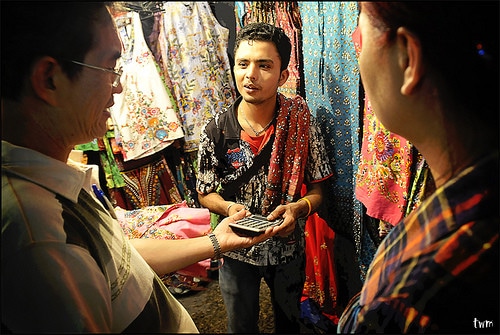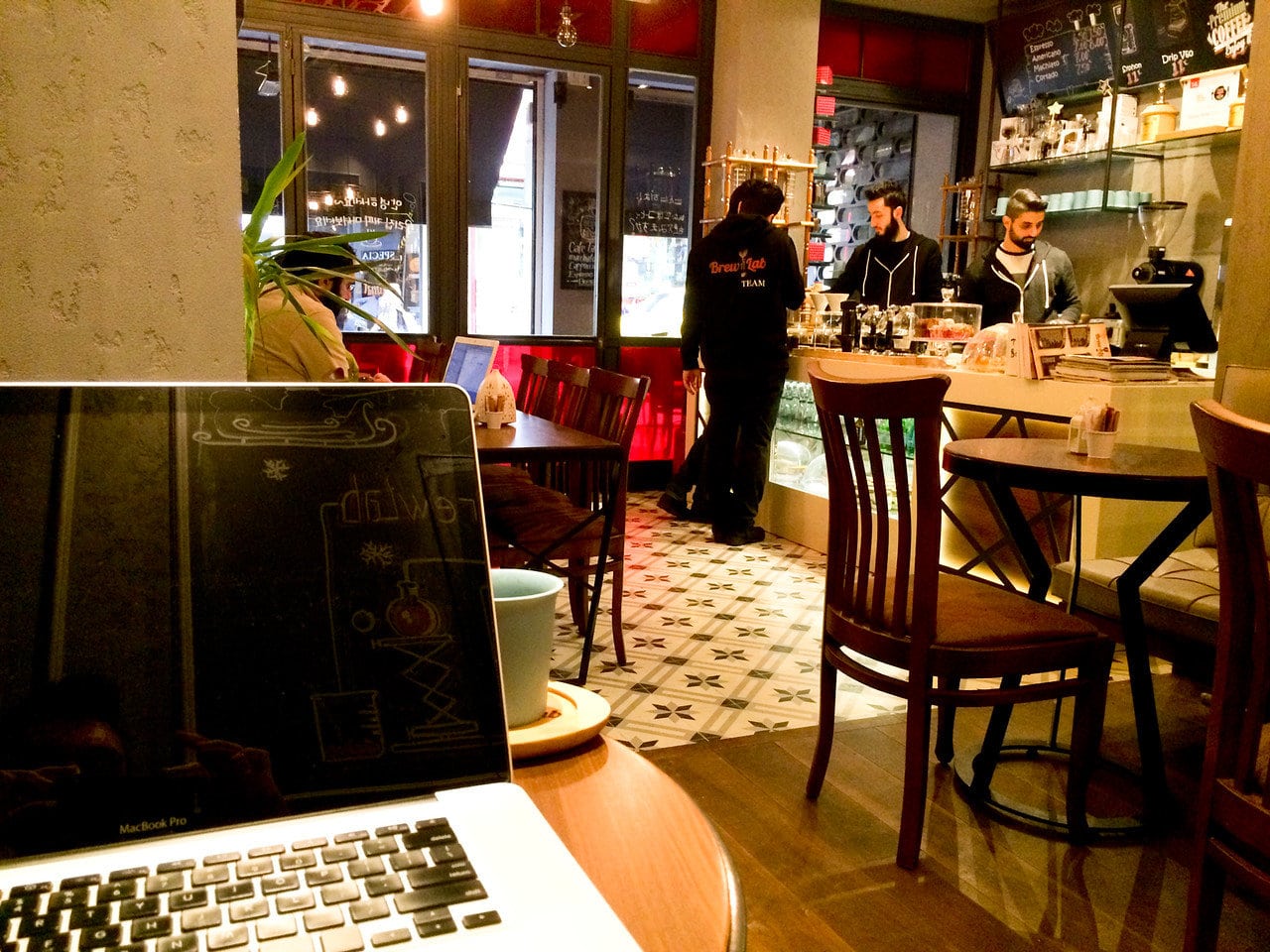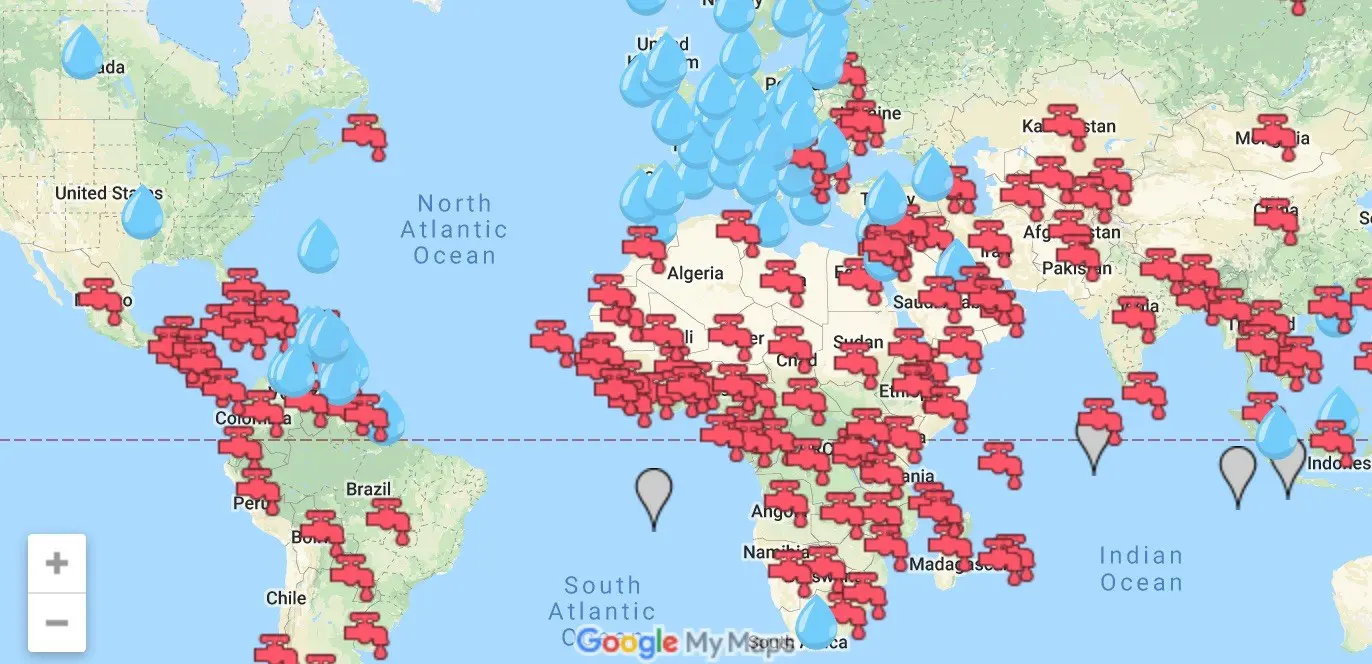 Bargaining is an integral part of many societies and cultures and a skill you can hone even if you don’t speak the local language. Much of bargaining is based on subtle physical mannerisms and a proper focus, both of which don’t require you to know more than a few words in any language.
Bargaining is an integral part of many societies and cultures and a skill you can hone even if you don’t speak the local language. Much of bargaining is based on subtle physical mannerisms and a proper focus, both of which don’t require you to know more than a few words in any language.
Smart bargaining by being aware of yourself and how you are perceived, can not only get you a better price and forge relationships but also develop your wits as a smart traveler – especially when you’re in unfamiliar ground or don’t know the language.
- Posture Is Everything – The moment you walk in to a shop or catch the eye of a merchant, your body language is screaming a number of things about you. It’s vital to look confident and like someone who knows what they want.
- Stand up straight
- Keep your head up
- Eyes forward (not slightly downward, avoiding eye contact, or wandering to everything around the store)
- Engage The Shopkeeper Directly, but Non-Verbally – Most tourists who are not comfortable with bargaining do everything they can to avoid the store, cart, etc. employees. Watch what the locals do, in most cultures, that is making eye contact upon initial contact. Make sure to learn the local customs and brush up on your international faux pas first. What you are doing is communicating that you are a confident person who is not intimidated – all without immediately giving away that you don’t know the language.
- Bargaining is about making relationships, not just dollars and cents. Remind yourself that you are dealing with a person, not a store. Unlike an employee at a large chain (i.e. Walmart) the employees’ livelihood is directly based on the income of their shops. They want you to buy things for a decent price, but be satisfied with your purchase at the same time.
- Know What You Are Looking For – Window shopping is great fun but will hurt you when negotiating prices especially if the shopkeeper tries to distract you by placing 50 items in front of you. Spend at least a day or two in an area shopping – with no intent to buy – so you can figure out those clothes and souvenirs (as well as prices) you really want. Being sure of what you want projects confidence no matter what language you speak (or don’t).
- Have A Pen and Paper Handy – Although much of what you need to communicate is through body language you need to be prepared to get through the mechanics of the sale. Having a pen and paper handy (small essentials that most travelers forget) shows that you came ready to do business and it will prevent you from trying and muddle through in your native tongue.
- Don’t get stuck trying to use words and use the language barrier to your advantage. Get to the point when negotiating, the raw numbers in front of you are hard to manipulate.
A Few Reminders, The Same Rules Apply
Whether or not you know the local language, there are some common bargaining techniques every traveler should keep in mind.
- Be firm
- Avoid seeming eager to buy
- Always remember you can walk out
Don’t focus on the mechanics of the sale, since you and the shopkeeper really are speaking the same language, of commerce. The process of looking for an item, working out the price, and going on your way are generally understood and not knowing the language can be one less distraction if you use it to your benefit.
Walk into a store projecting confidence and ready to engage people. The same techniques will also help you stay safe on the road.
[photo by: JasonDGreat]












All right–I’ve got my advice…now to put it to use, hehe.
They sure can get pushy though–their children would swarm me. x.X
Paper and pen will definitely be my bargaining friends. Thanks Anil. 😀
@ D:
Glad you found the post useful, the question was certainly inspirational. Pen, paper, and a steel resolve!
This is great advice that I will show my husband. He’s one of those people who is very uncomfortable and thinks he’s insulting the salesperson by trying to get a better price.
In my experience in travel in Turkey, Africa, or Asia, the salesperson seems to respect you more if you (the foreigner) realizes that bargaining is part of the process of buying something.
I agree with all that you said, but I also found in my case that simply smiling can help a lot too!
When it comes down to it, bargaining is about the relationship that is formed – not the money. I think that’s part of the disconnect some people (especially Westerners) have, making the bargaining process uncomfortable.
Like you said, you’ve got to have fun with it, and the shopkeeper will be much more easy to deal with. Hang out, get a good price, and leave with something nice, all good reasons to smile!